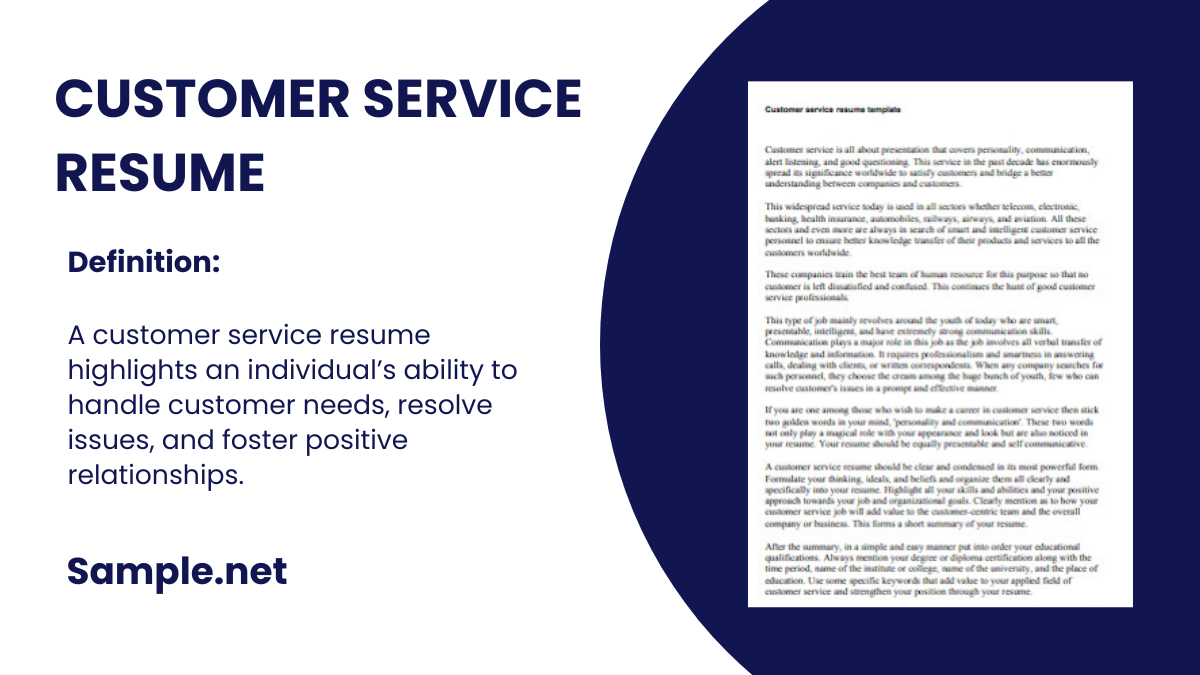A customer service resume highlights an individual’s ability to handle customer needs, resolve issues, and foster positive relationships. It should showcase key skills such as communication, problem-solving, and adaptability…
continue reading
24+ Sample College Resume
-
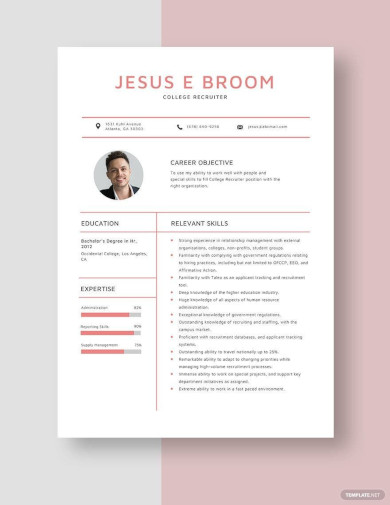
College Recruiter Resume
download now -
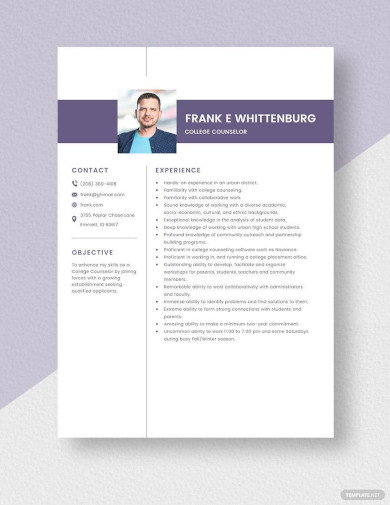
College Counselor Resume
download now -
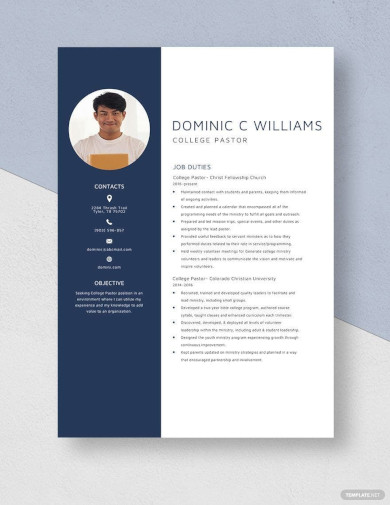
College Pastor Resume
download now -
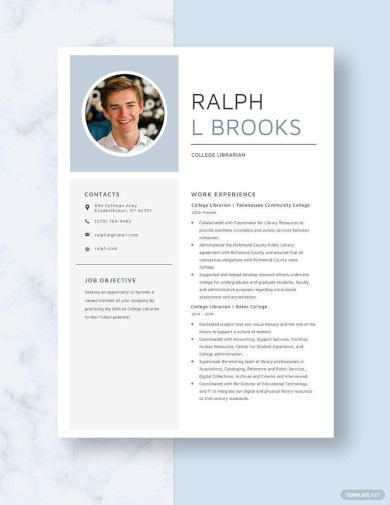
College Librarian Resume
download now -
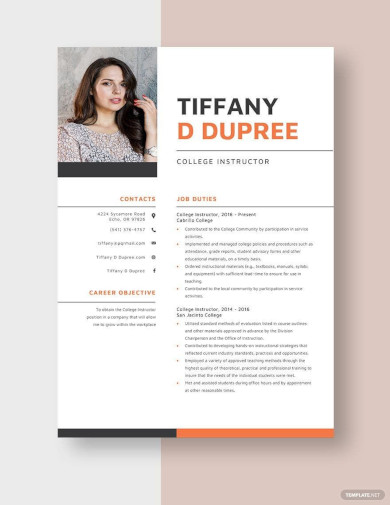
College Instructor Resume
download now -
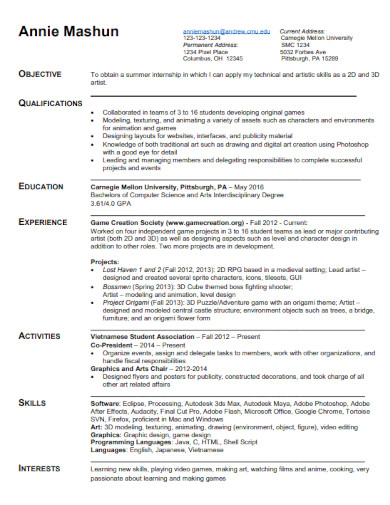
College Internship Resume
download now -
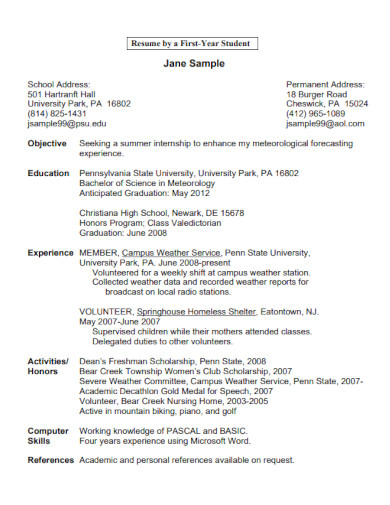
College First Year Student Resume
download now -
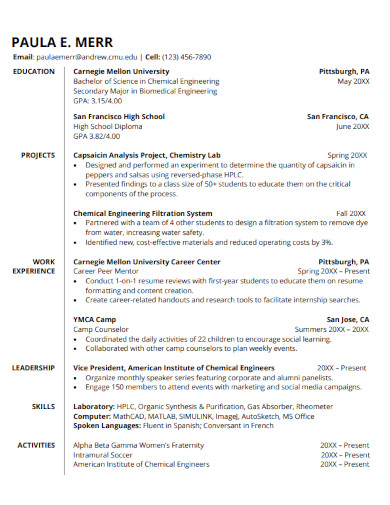
Undergraduate College Resume
download now -
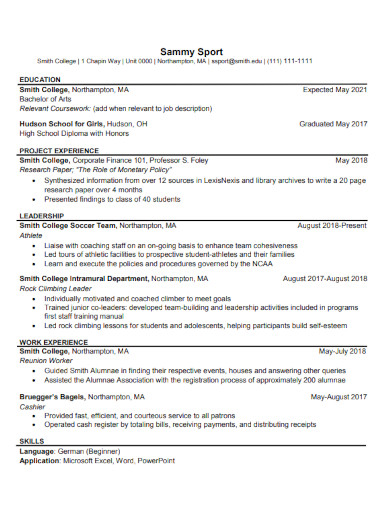
Simple College Resume
download now -
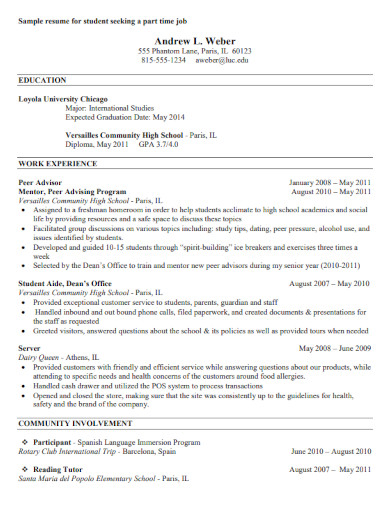
College Student Resume for Part Time Job
download now -
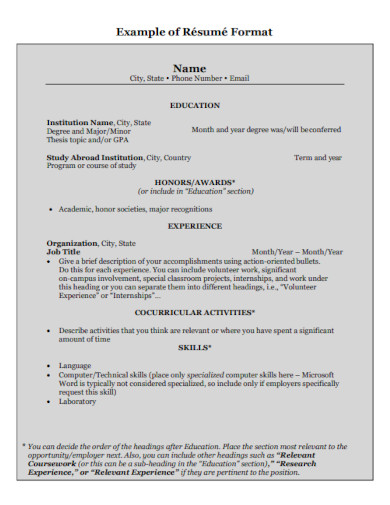
College Resume Format
download now -
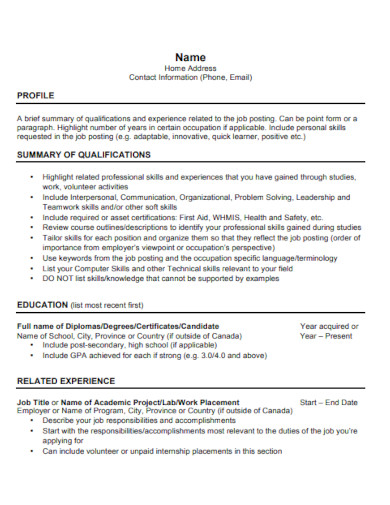
College Resume for Students
download now -
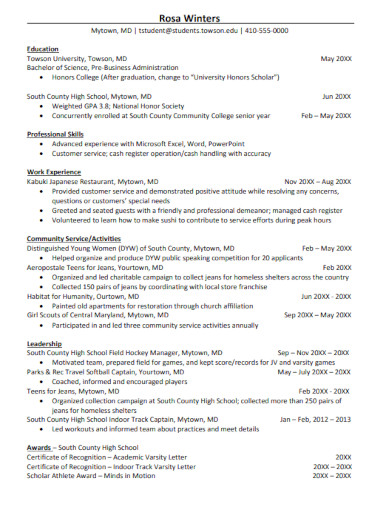
Honors College Resume
download now -
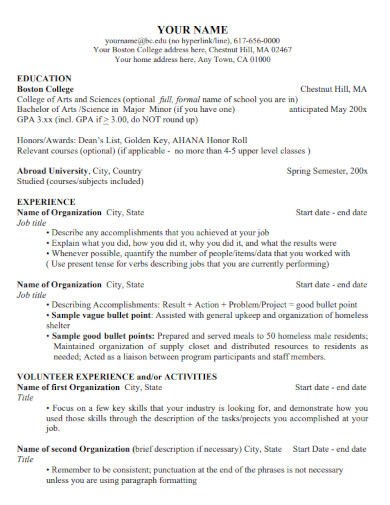
Arts College Resume
download now -
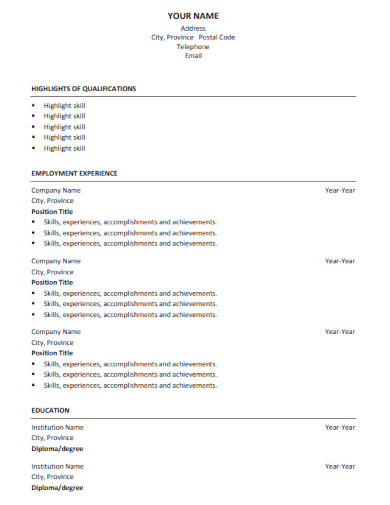
College Student Resume Format
download now -
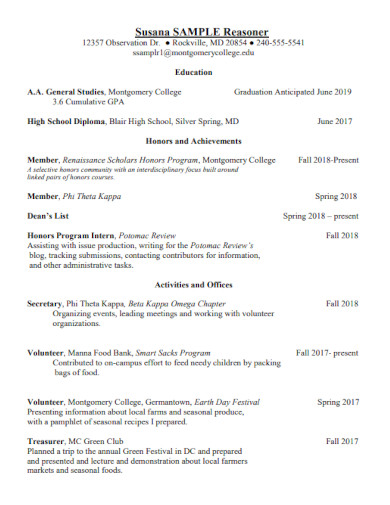
College Basic Resume
download now -
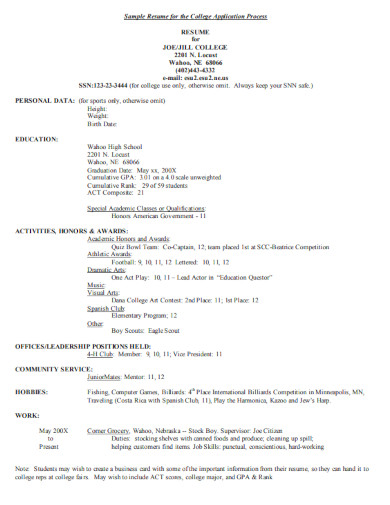
Resume for the College Application Process
download now -
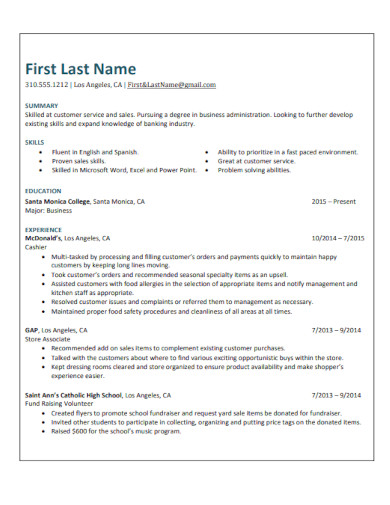
Business College Resume
download now -
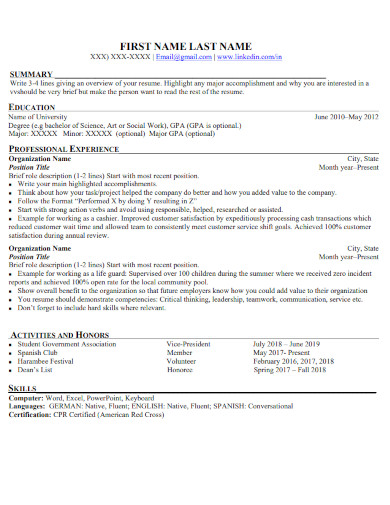
Professional College Resume
download now -
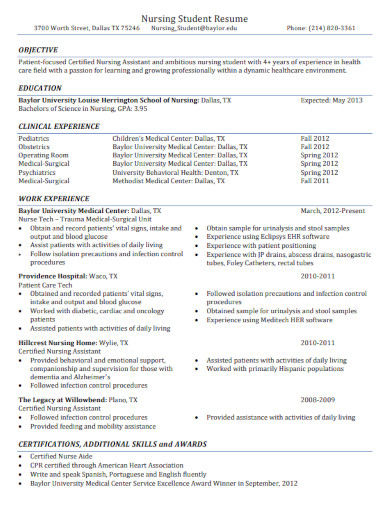
Nursing College Student Resume
download now -
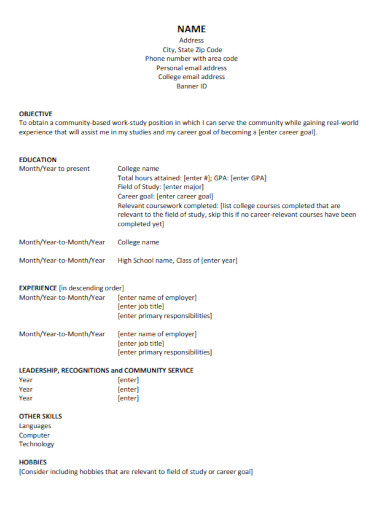
College Resume with Experience
download now -
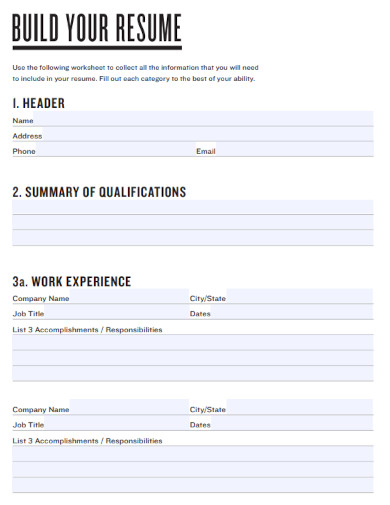
Blank College Resume
download now -
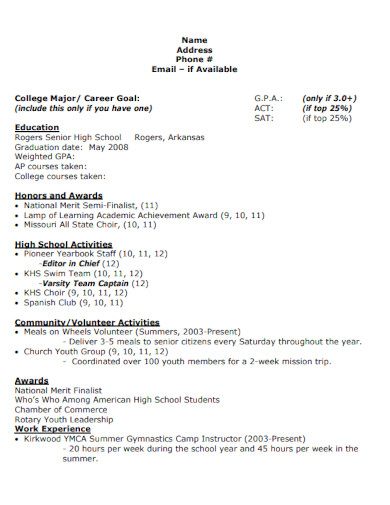
Academic College Resume
download now -
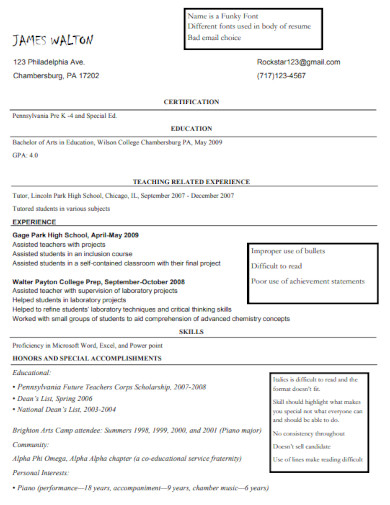
College Teacher Resume
download now -
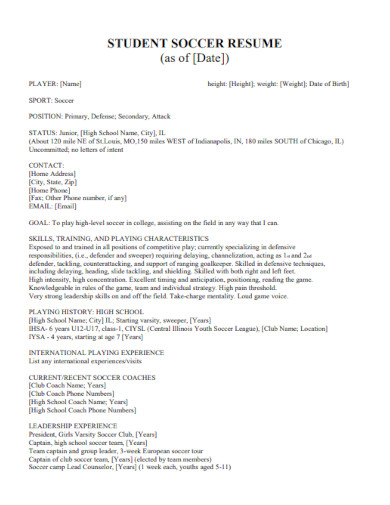
College Student Soccer Resume
download now
What is a College Resume?
A college resume is a concise and personalized document that presents an overview of a student’s academic achievements, extracurricular involvement, work experience, and relevant skills and a professional introduction to higher education institutions and potential employers. Designed to showcase one’s qualifications, a college resume plays a crucial role in the college admission process and also serves as a valuable tool for job and internship applications, presenting an amalgamation of education and practical exposure. This professional snapshot captures a student’s educational journey, ranging from high school accomplishments to undergraduate pursuits. It includes essential details such as academic performance, leadership roles, community service, and notable projects. A college resume highlights the individual’s unique blend of education and experience, providing a glimpse into their potential as future professionals in fields like engineering, computer science, and other areas of interest.
College student resumes hold immense significance for high school, college, and undergraduate students, as well as other individuals seeking opportunities. They serve as a powerful tool during college applications, allowing students to showcase their academic achievements, extracurricular activities, and relevant experiences. According to a survey by the National Association for College Admission Counseling, 79% of colleges consider a resume an important factor in the admission process. For freshmen, a well-crafted resume can help secure internships and part-time jobs, boosting their professional journey from the start. Moreover, for college graduates, resumes become crucial in landing full-time positions, with 87% of employers considering them a valuable screening tool. Overall, a compelling college resume acts as a comprehensive summary, presenting individuals in the best light to secure academic and career opportunities effectively.
Examples of College Resumes
Each of these college resumes reflects the unique strengths, experiences, and aspirations of the individual students and graduates. Whether highlighting technical skills in engineering, scientific research in biology, proficiency in computer science, or expertise in finance and accounting, these resumes serve as powerful tools in securing internships, jobs, or admission to higher education institutions.
How to Create a Compelling College Resume
Crafting a compelling college resume is an essential step toward securing academic opportunities and future career success. By strategically highlighting academic achievements, extracurricular activities, work experiences, and relevant skills, you can create a standout resume that impresses college admission officers and potential employers alike.
Step 1: Identify Your Focus and Goals
Define your career objectives, whether it’s landing a job, securing an internship, or gaining admission to a specific college. Tailor your resume to match these goals, emphasizing relevant keywords like “college application” or “job” to catch the reader’s attention.
Step 2: Showcase Academic Achievements and Coursework
Highlight your high school or undergraduate academic performance, including honors, awards, and relevant coursework in fields like “engineering,” “computer science,” or “business.” Mention any research projects or senior theses to demonstrate your academic prowess.
Step 3: Highlight Extracurricular Activities and Leadership
Emphasize your involvement in clubs, organizations, and leadership positions. Showcase skills like teamwork, communication, and organization, crucial for standing out in college applications or job interviews.
Step 4: Include Relevant Work Experience
Whether it’s an internship, part-time job, or volunteer work, detail your experiences in fields like “nursing,” “finance,” “accounting,” or “biology.” Describe your responsibilities and achievements, and use action verbs to make your accomplishments more impactful.
Step 5: Customize and Format Professionally
Tailor your resume for each opportunity, incorporating keywords like “college graduate” or “college admission” when necessary. Choose a clean and organized layout, and keep it concise to make a lasting impression on recruiters and admission officers alike. Proofread thoroughly to ensure error-free content.
FAQs
When creating a standout college resume for job internships, it is essential to tailor it to the specific position or industry you are targeting. Clearly define your career objective or goal and align your experiences and skills with the requirements of the internship. Use action verbs and quantifiable achievements to highlight your accomplishments and demonstrate your capabilities. Include relevant coursework, projects, research, and extracurricular activities that showcase your skills and knowledge in the field. Consider including any leadership roles, volunteer work, or part-time jobs that demonstrate your ability to take initiative and work in diverse environments. Finally, proofread your resume carefully to ensure it is error-free and presents a professional image. Don’t forget to include a cover letter for internship.
The key differences between a college admission resume and a regular job application form and resume lie in the focus and content. A college admission resume typically emphasizes academic achievements, extracurricular activities, volunteer work, leadership roles, and relevant coursework. It aims to showcase a student’s well-roundedness and potential for success in college. On the other hand, a regular job application resume focuses more on professional experiences, skills, and accomplishments that are directly relevant to the job being applied for. It highlights a candidate’s ability to perform specific job tasks and contribute to the organization’s goals.
Recommended resume formats or templates for college students include the reverse chronological format, functional format, or a combination of both. The reverse chronological format is the most common and presents information in reverse chronological order, starting with the most recent experiences. This format is suitable for students with a consistent work or internship history. The functional format focuses on skills and abilities rather than specific job experiences and is suitable for students with limited work experience or those changing career paths. A combination format combines elements of both the reverse chronological and functional formats, highlighting both skills and relevant experiences.
Common mistakes college students make when writing their resumes include including irrelevant or outdated information, failing to quantify achievements, using generic language, and neglecting to proofread for errors. It is important to tailor your resume to each specific job application and only include information that is relevant to the position. Quantify achievements whenever possible by using numbers, percentages, or specific outcomes to demonstrate the impact of your work. Avoid using generic language or clichés and instead, use specific and action-oriented language to describe your responsibilities and accomplishments. Finally, always proofread your resume carefully to ensure it is free of errors and presents a professional image.
Creating a compelling resume for a college student with limited work experience can be challenging, but there are strategies to overcome this. Focus on highlighting relevant coursework, academic projects, internships, volunteer work, or any part-time jobs that demonstrate transferable skills. Emphasize any leadership roles or significant contributions you have made in extracurricular activities or student organizations. Additionally, showcase any relevant certifications, professional development courses, or language proficiency. Use action verbs and specific examples to describe your responsibilities and achievements, even if they are not directly related to the job you are applying for.
What are some expert tips for creating a standout college resume for job internships?
What are some key differences in resume writing for high school students versus college freshmen?
Are there any specific resume formats or templates that are recommended for college students?
What are some common mistakes that college students make when writing their resumes, and how can they be avoided?
How can a college student with limited work experience still create a compelling resume?
Ultimately, a well-crafted college resume acts as a bridge connecting academic accomplishments with real-world opportunities and fosters success in the competitive realms of education and employment. By showcasing your skills, experiences, and achievements in a tailored and impactful way, you can stand out to potential employers and increase your chances of securing job internships. With expert tips and examples, you can create a standout resume that highlights your strengths and qualifications, helping you open doors to professional opportunities. Take the time to customize your resume for each specific job application, emphasizing relevant coursework, internships, leadership roles, and extracurricular activities while using our job cover letter samples and job forms. By presenting yourself as a well-rounded candidate with the necessary skills and dedication to succeed, you can greatly enhance your career prospects.

